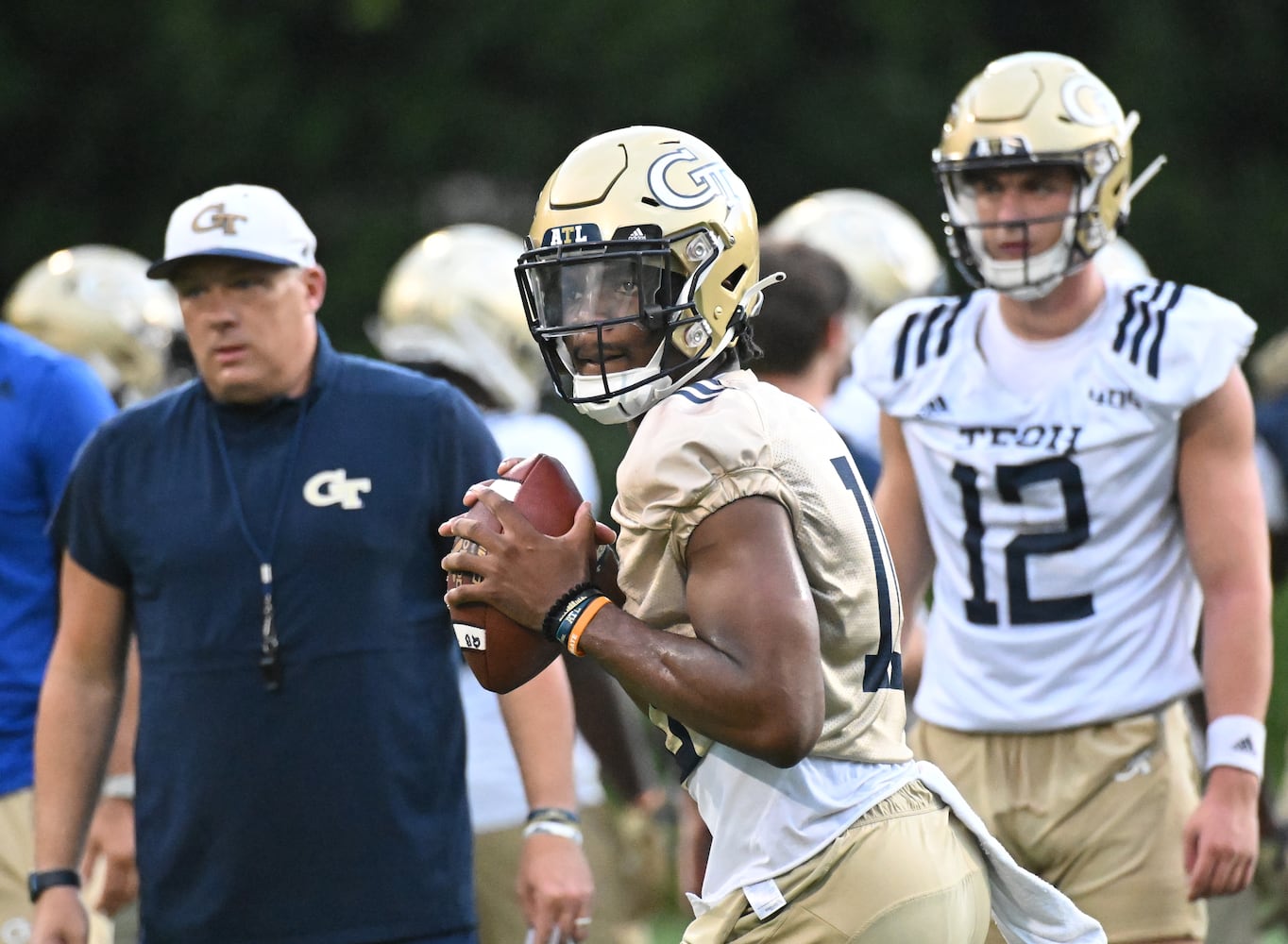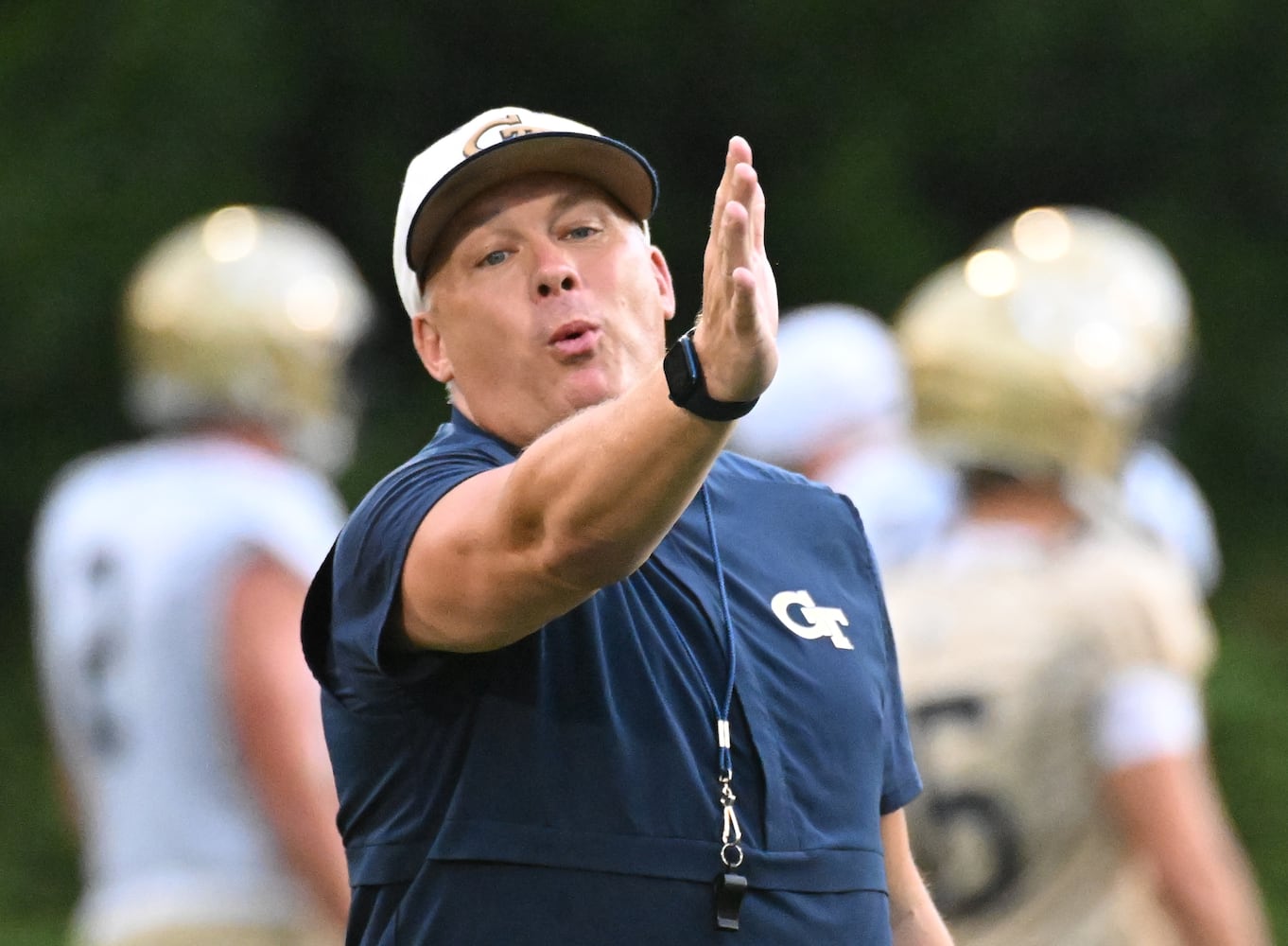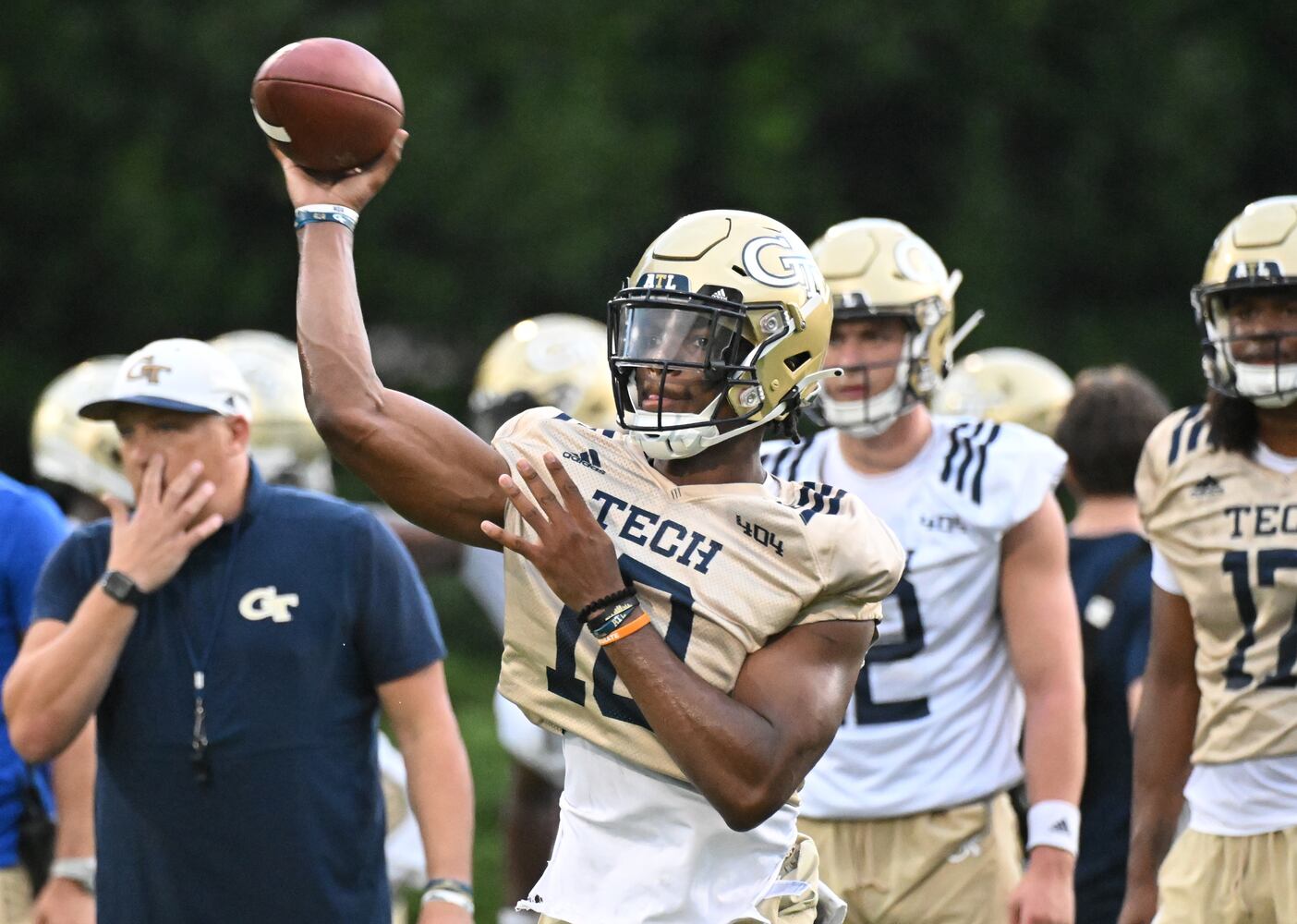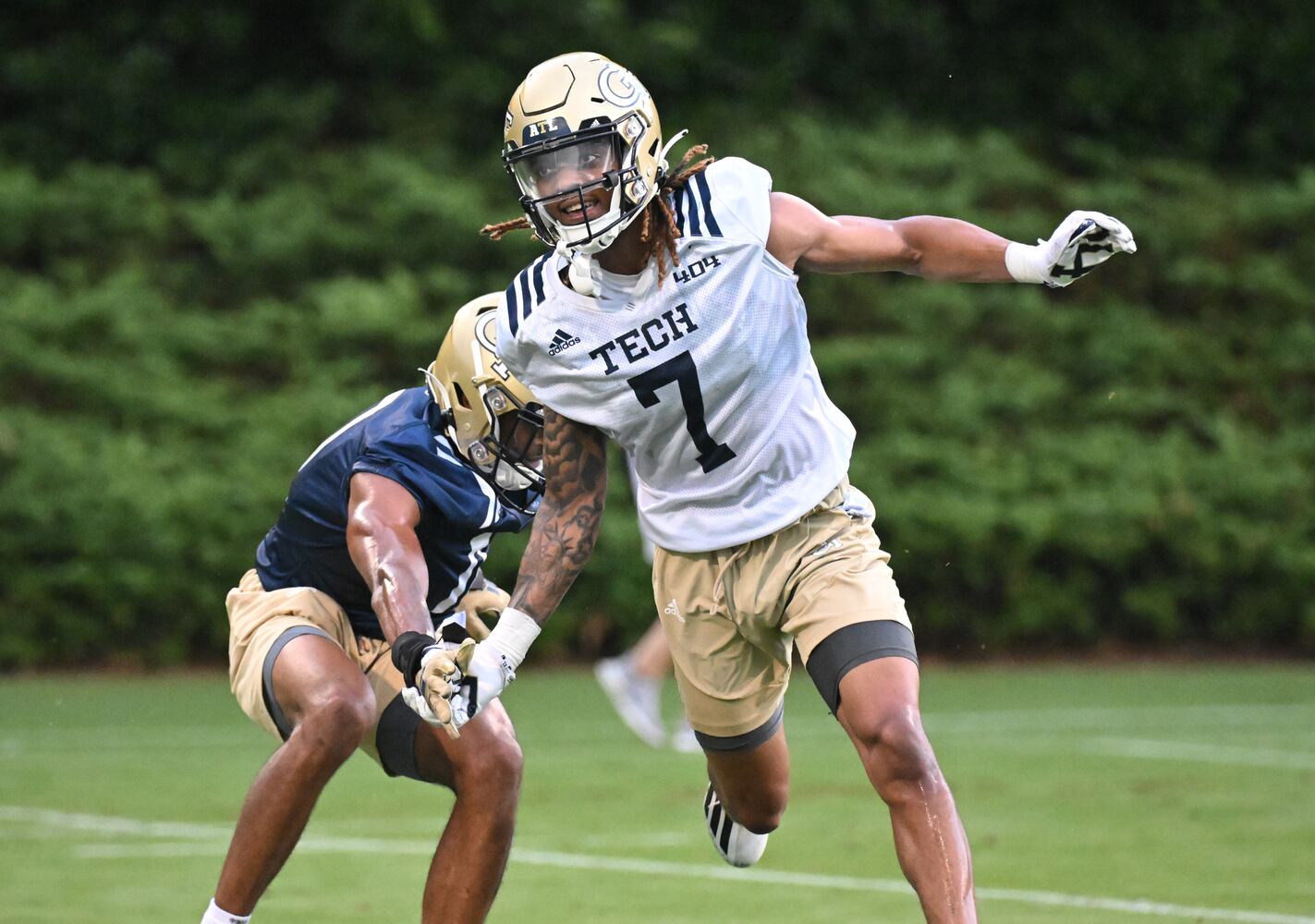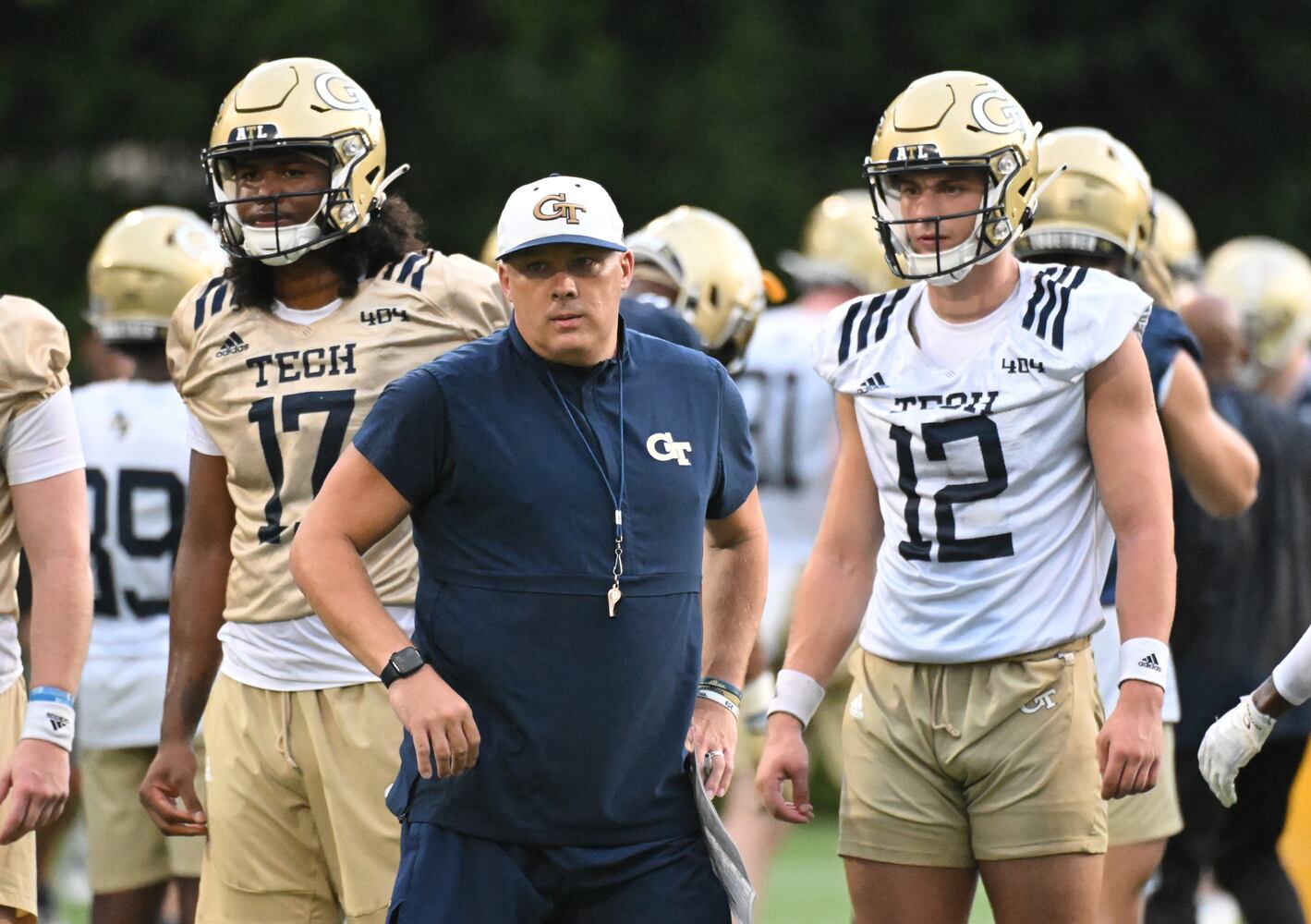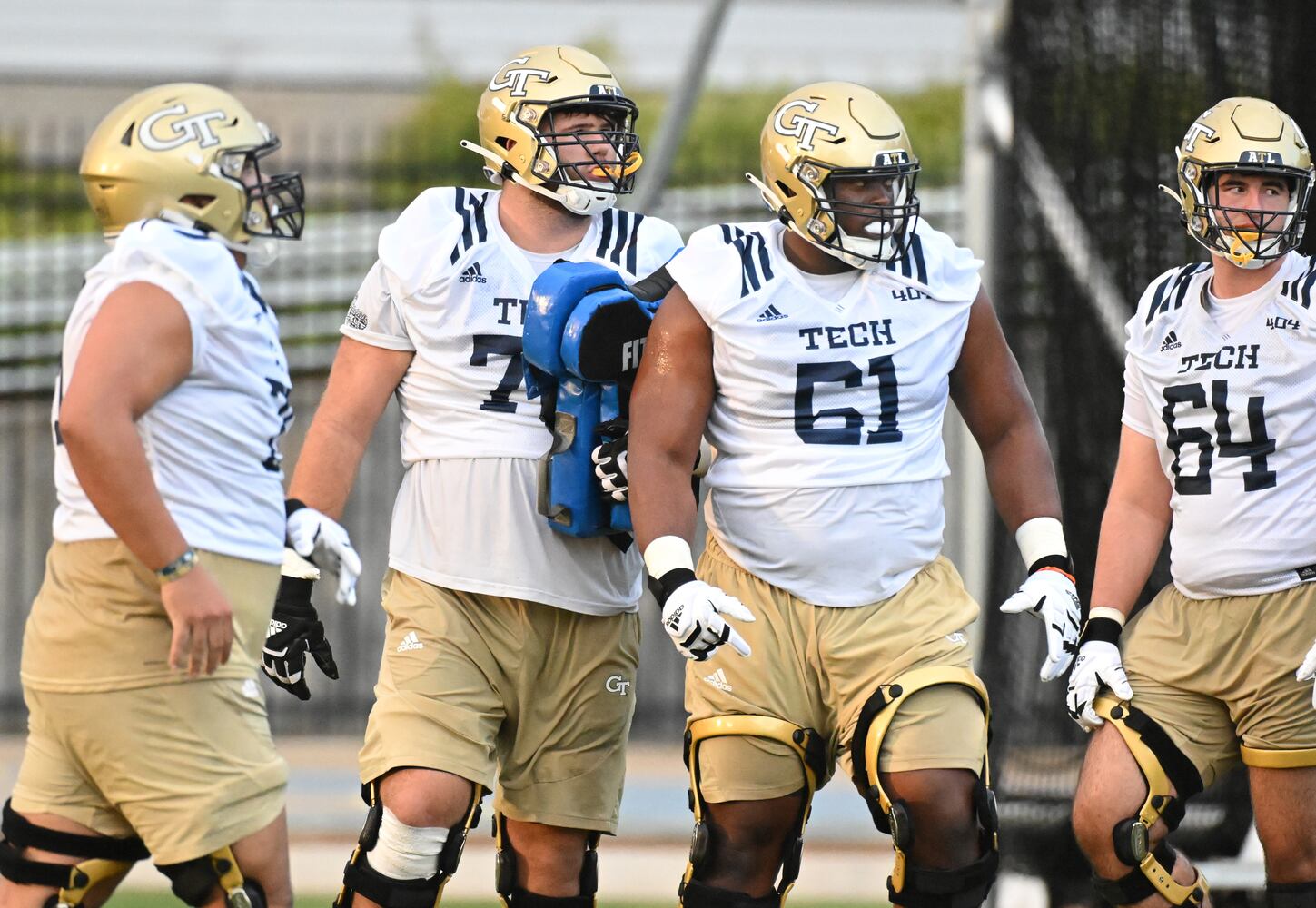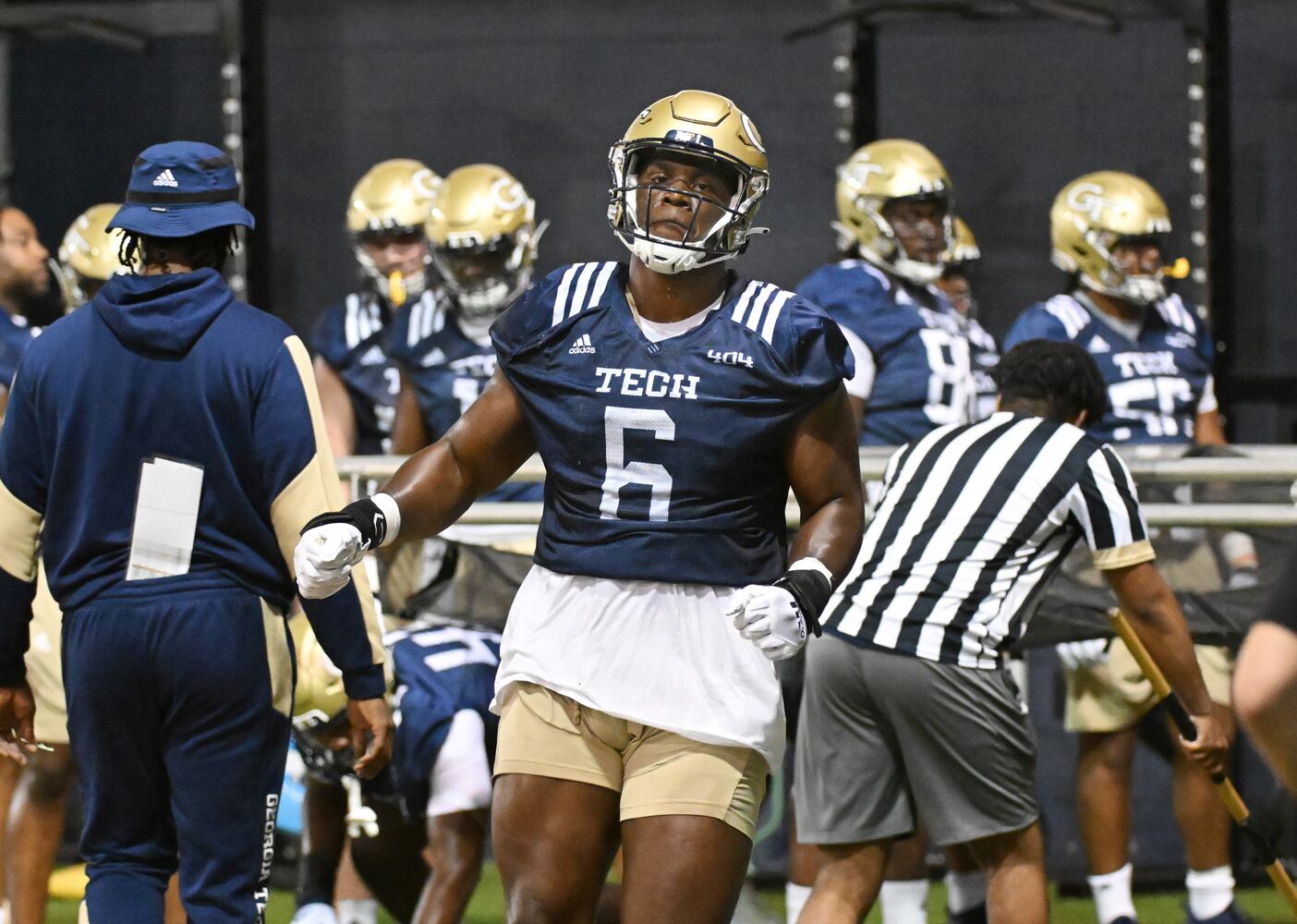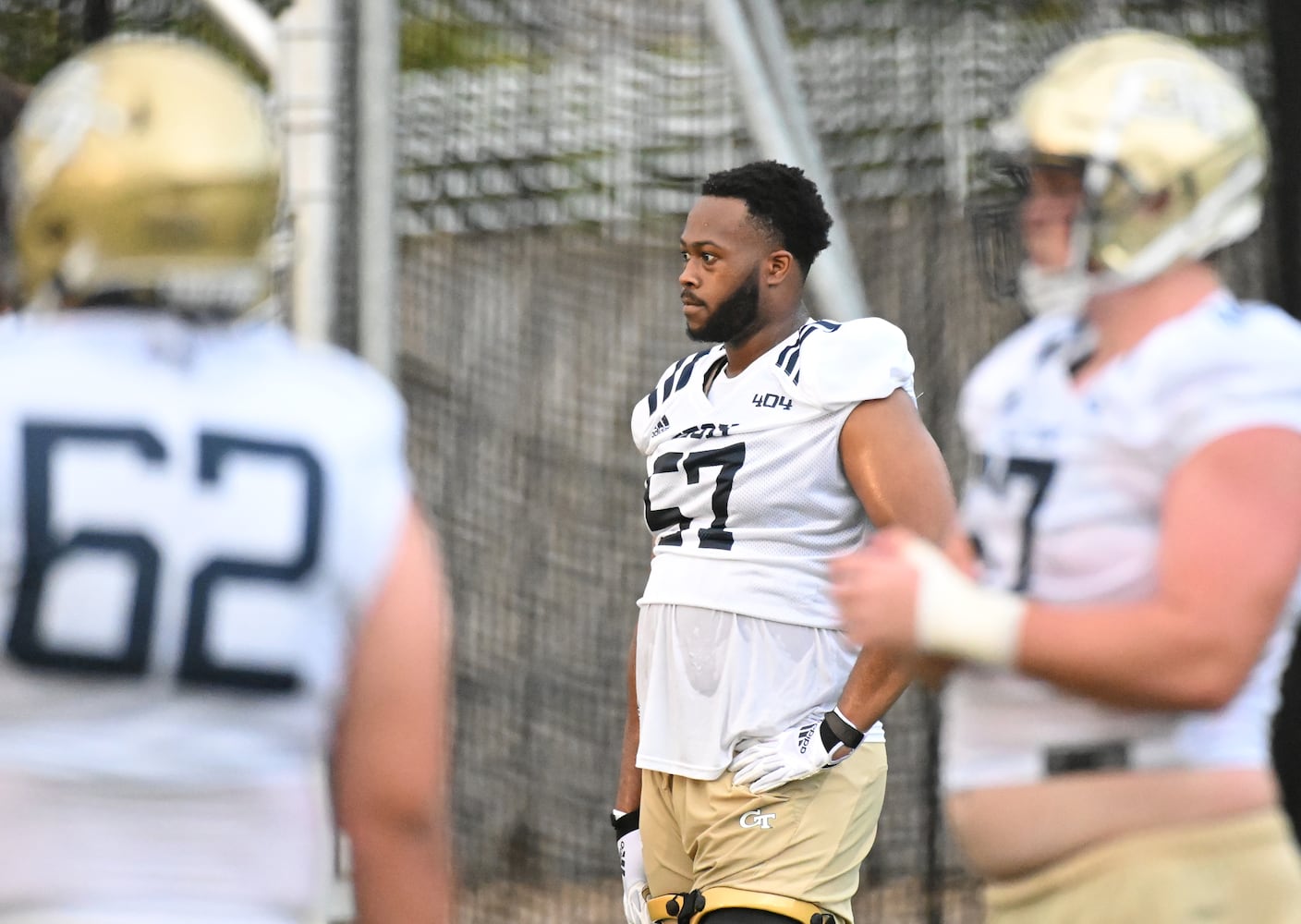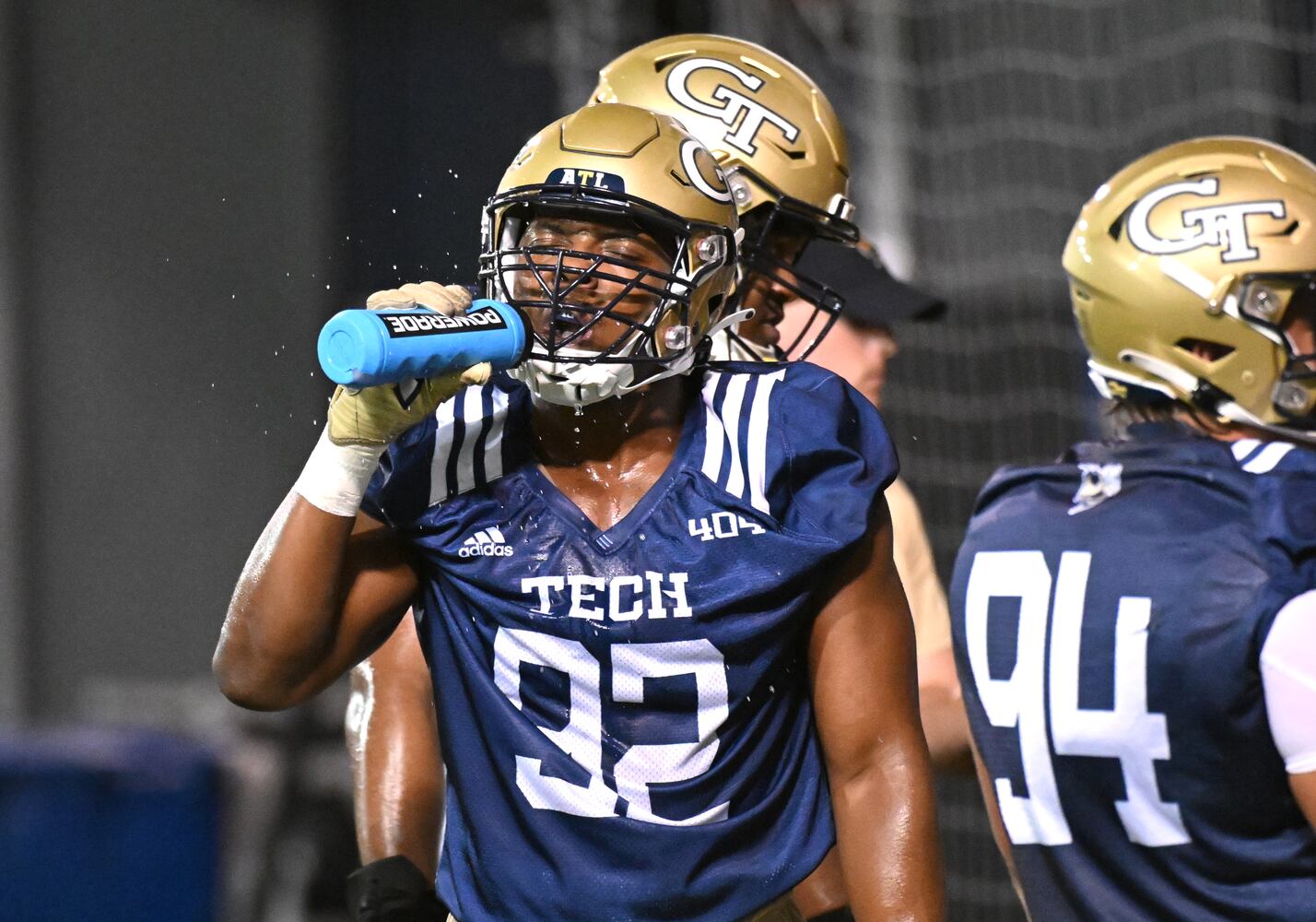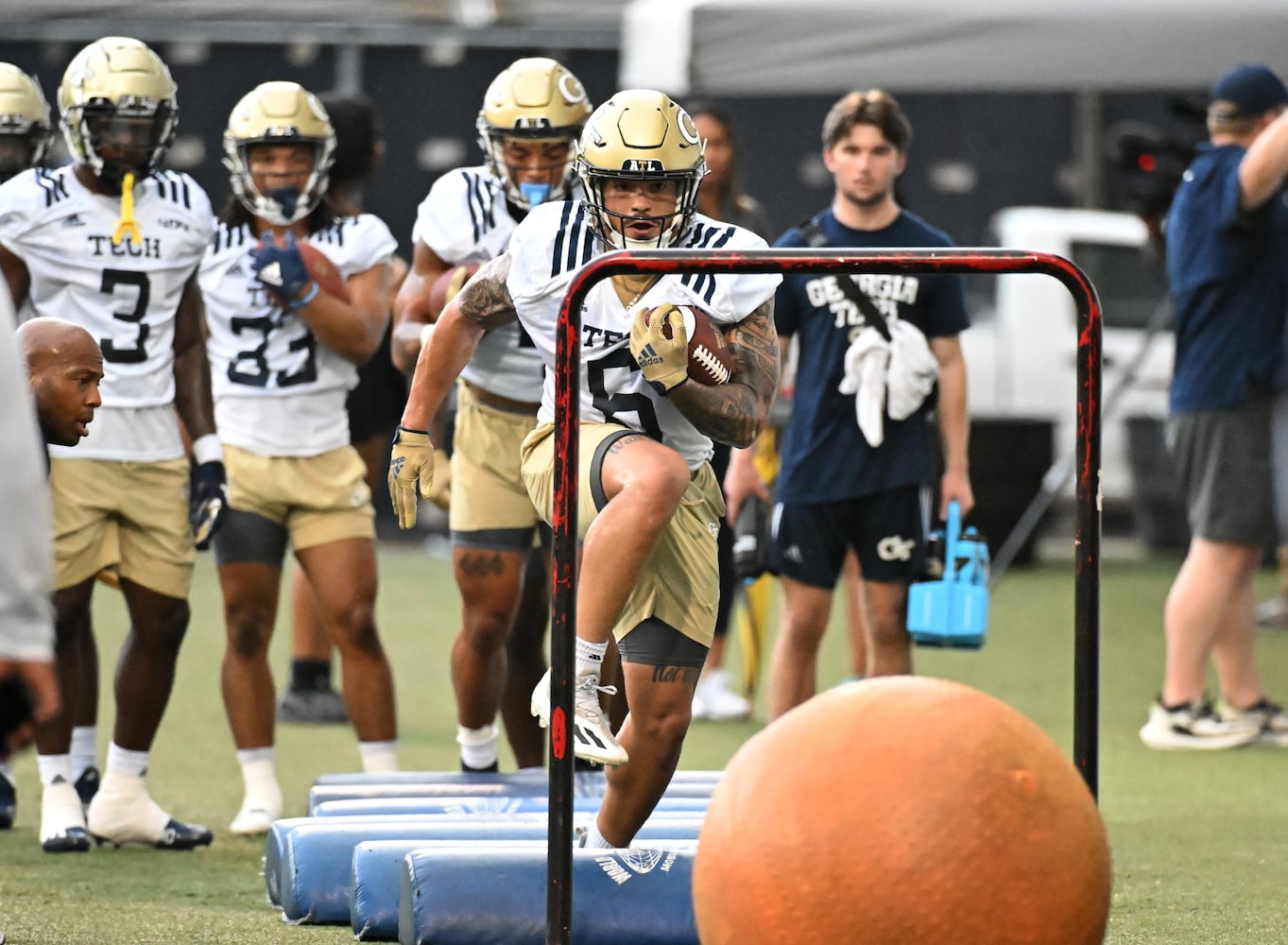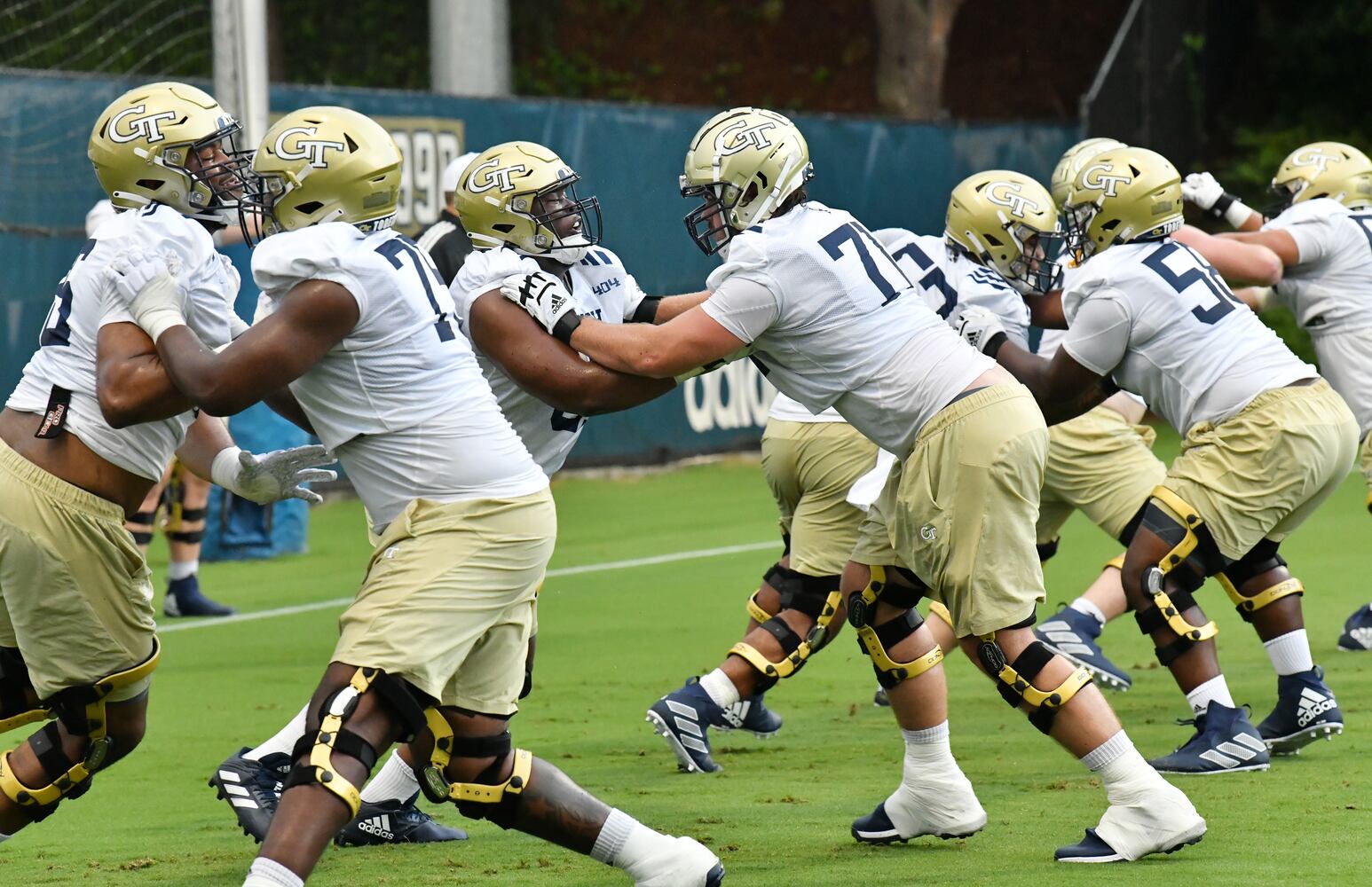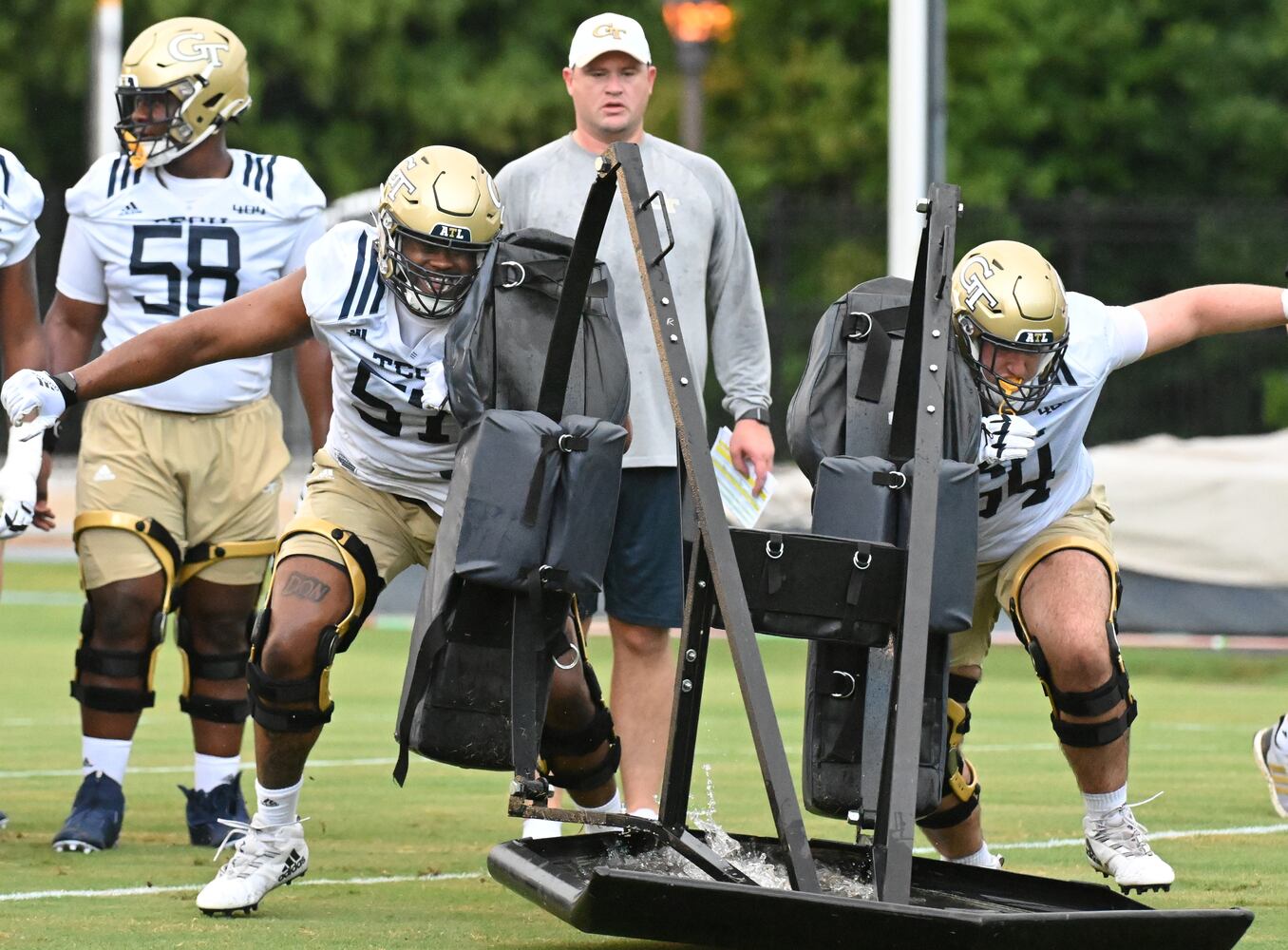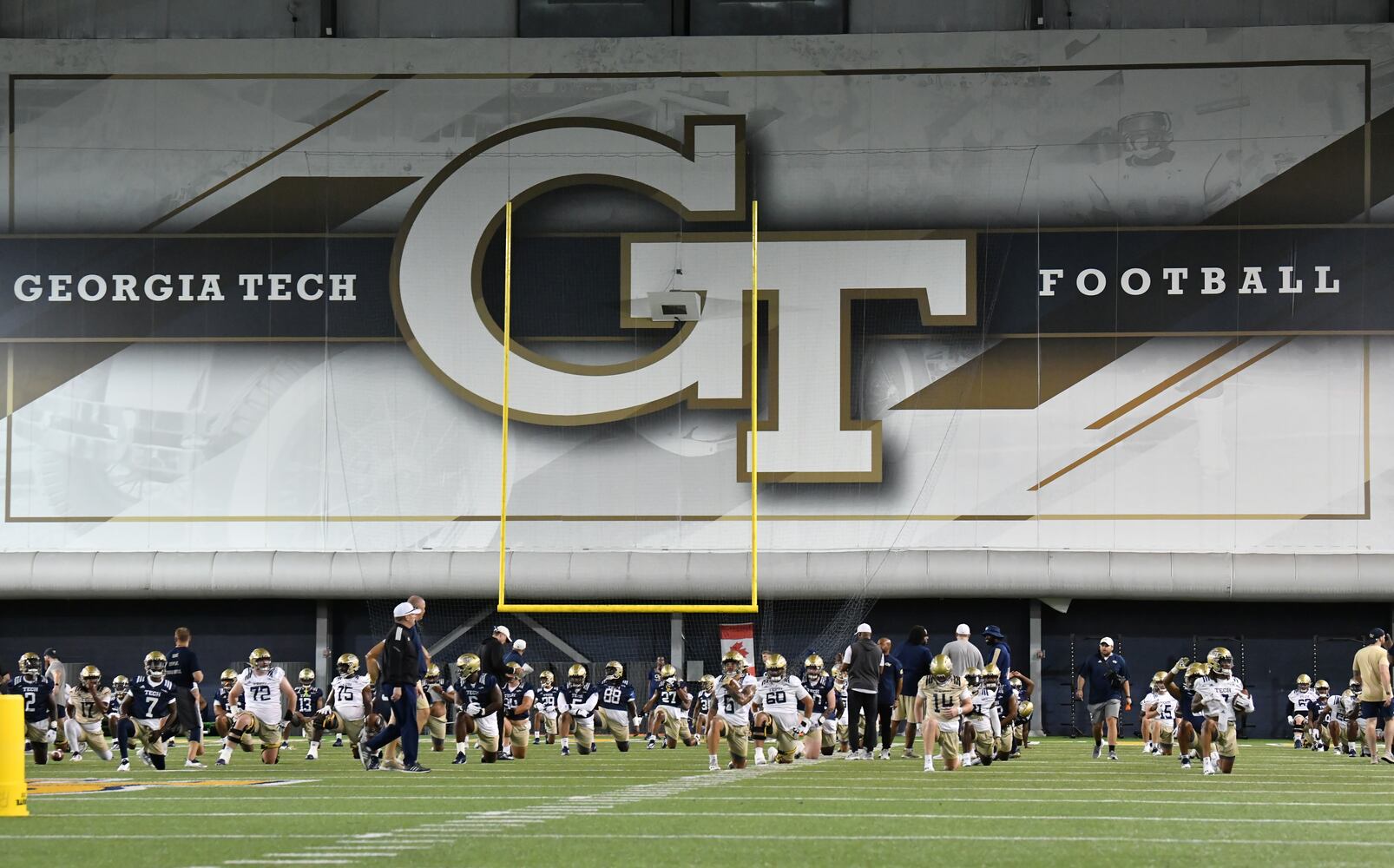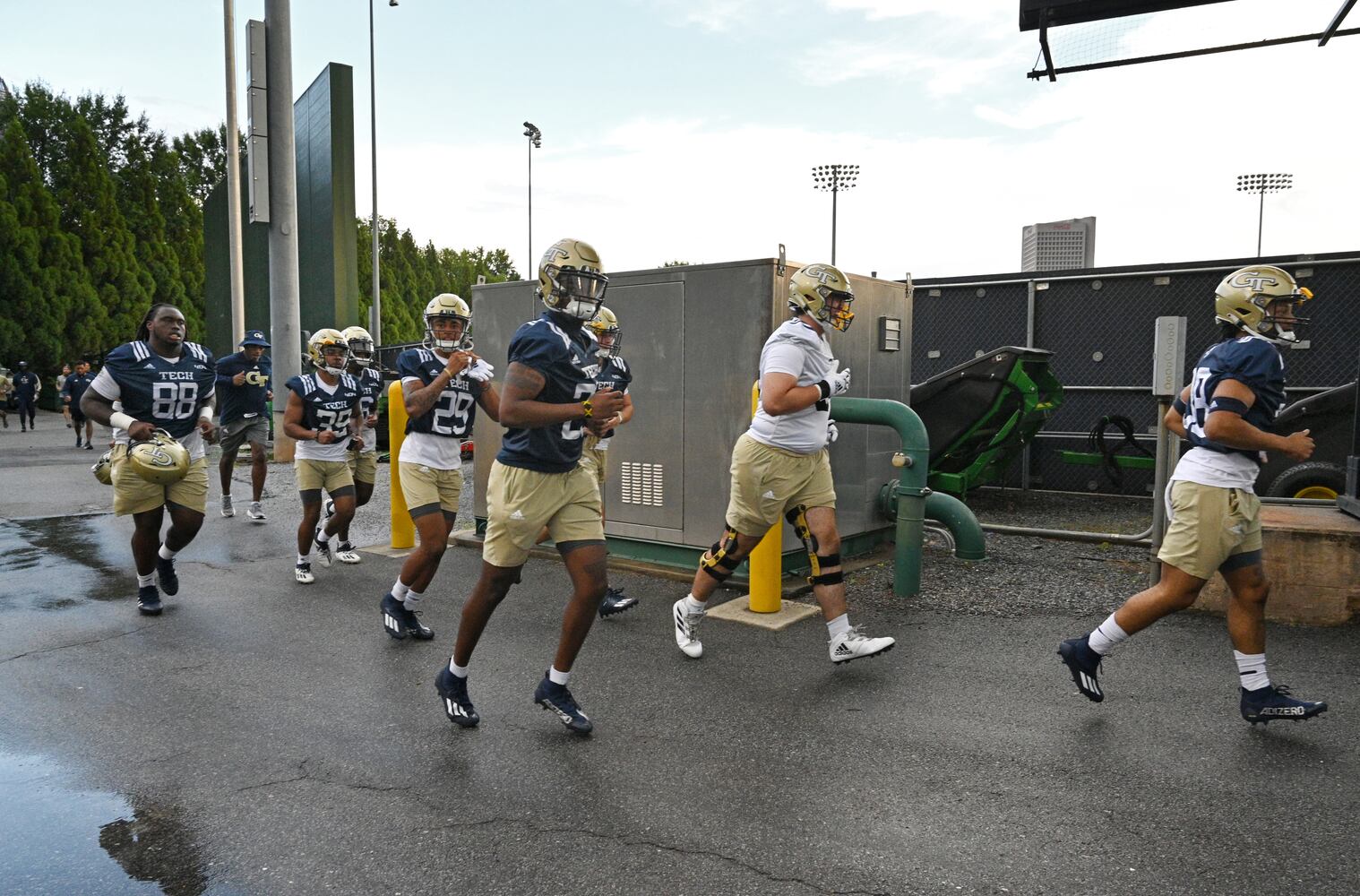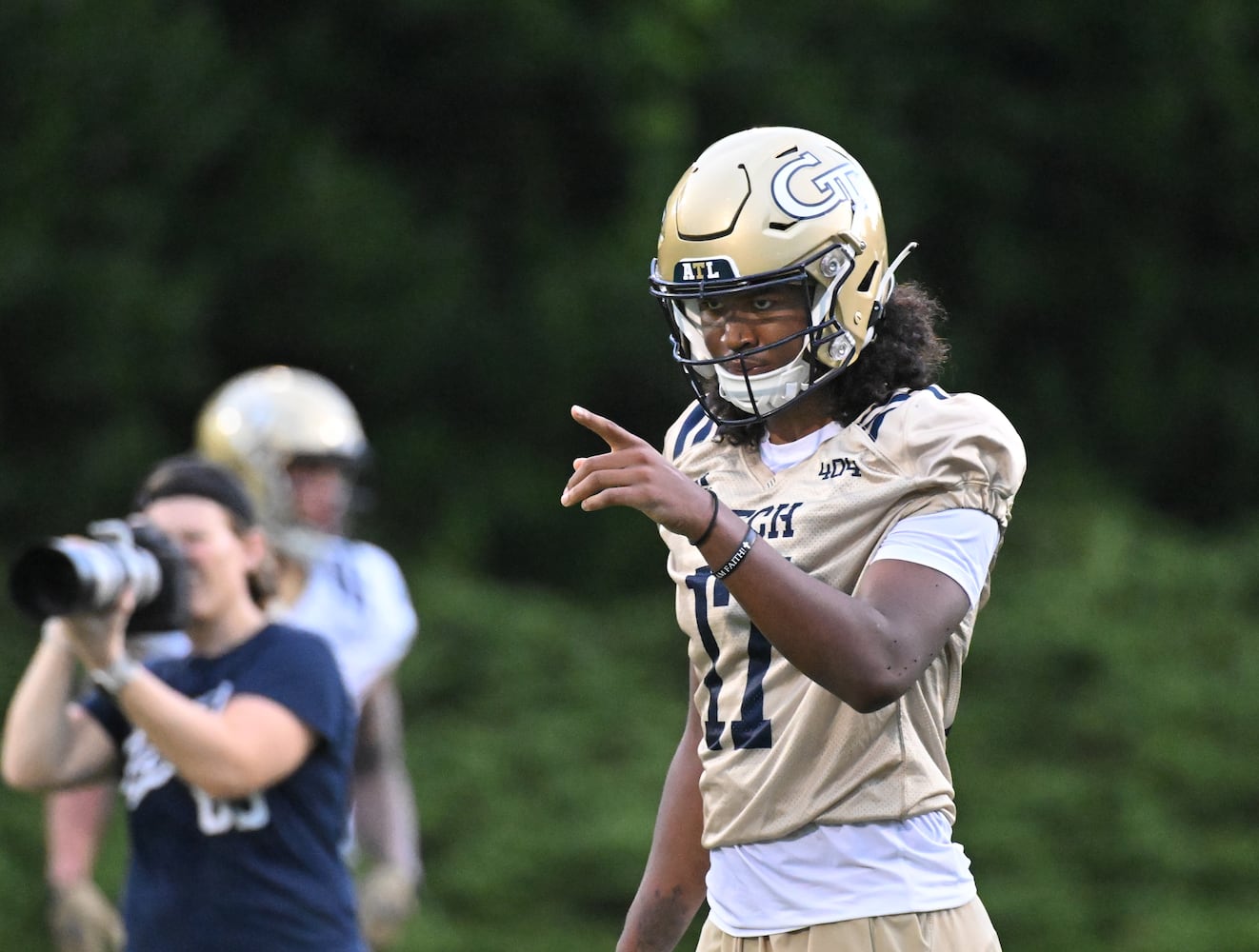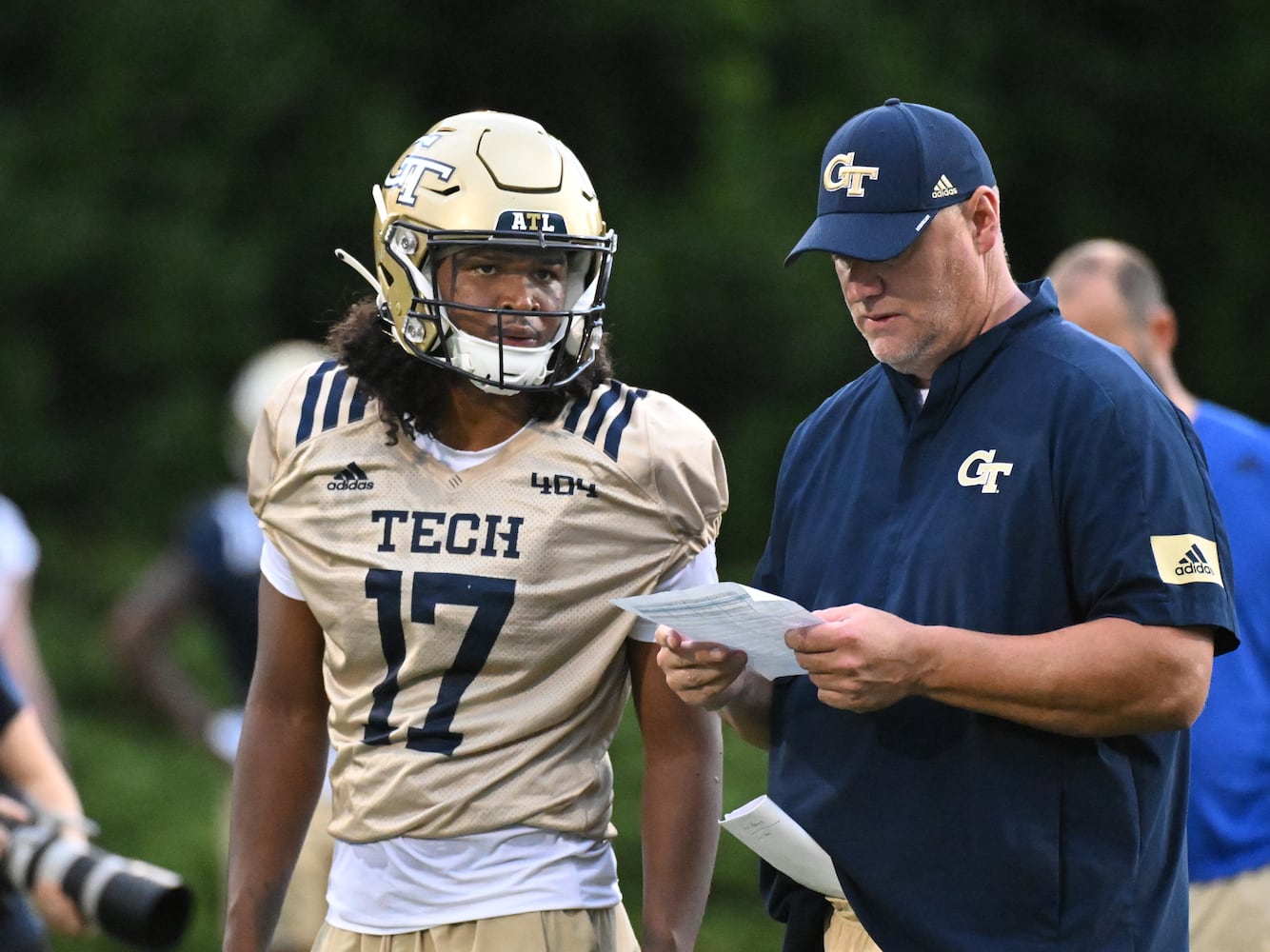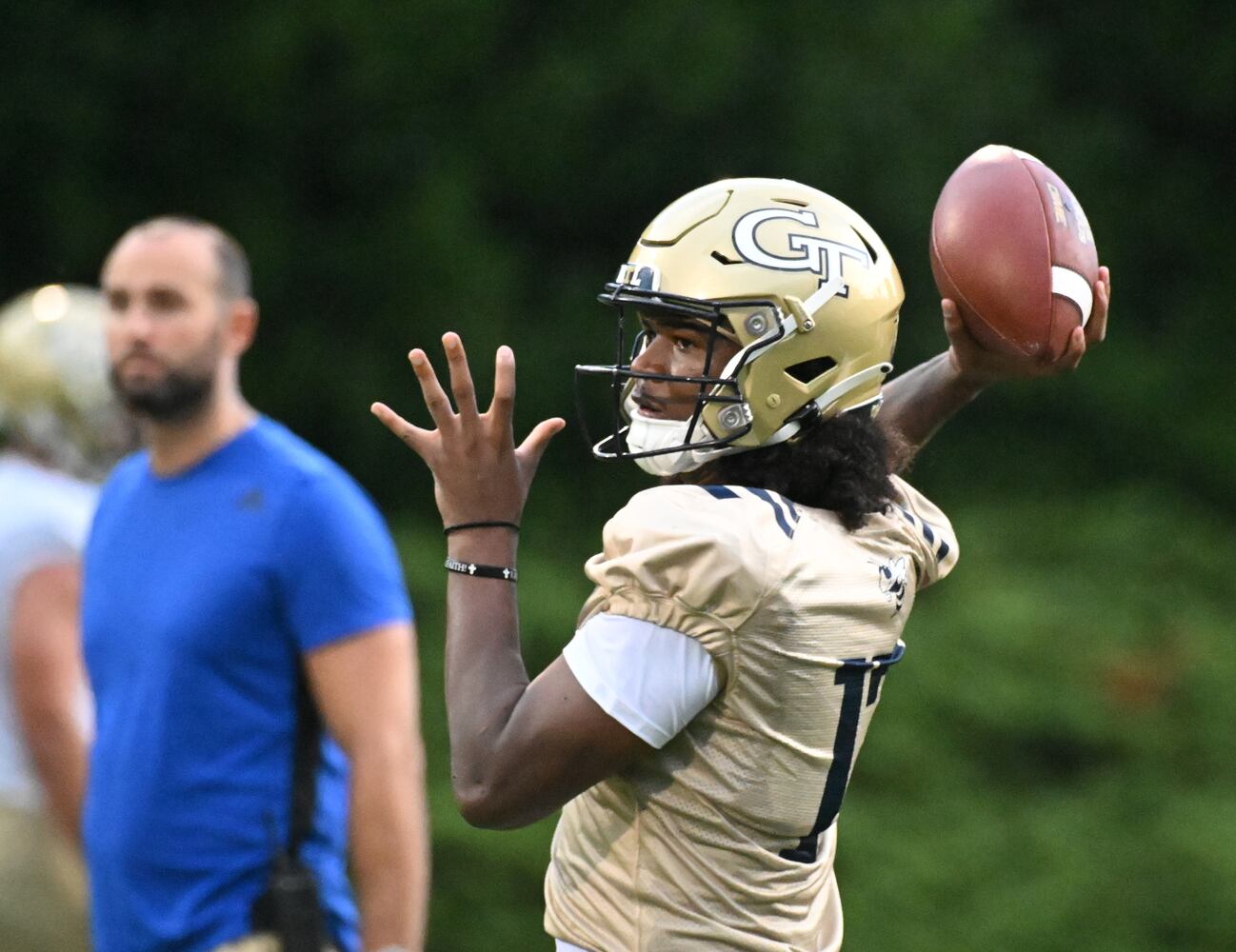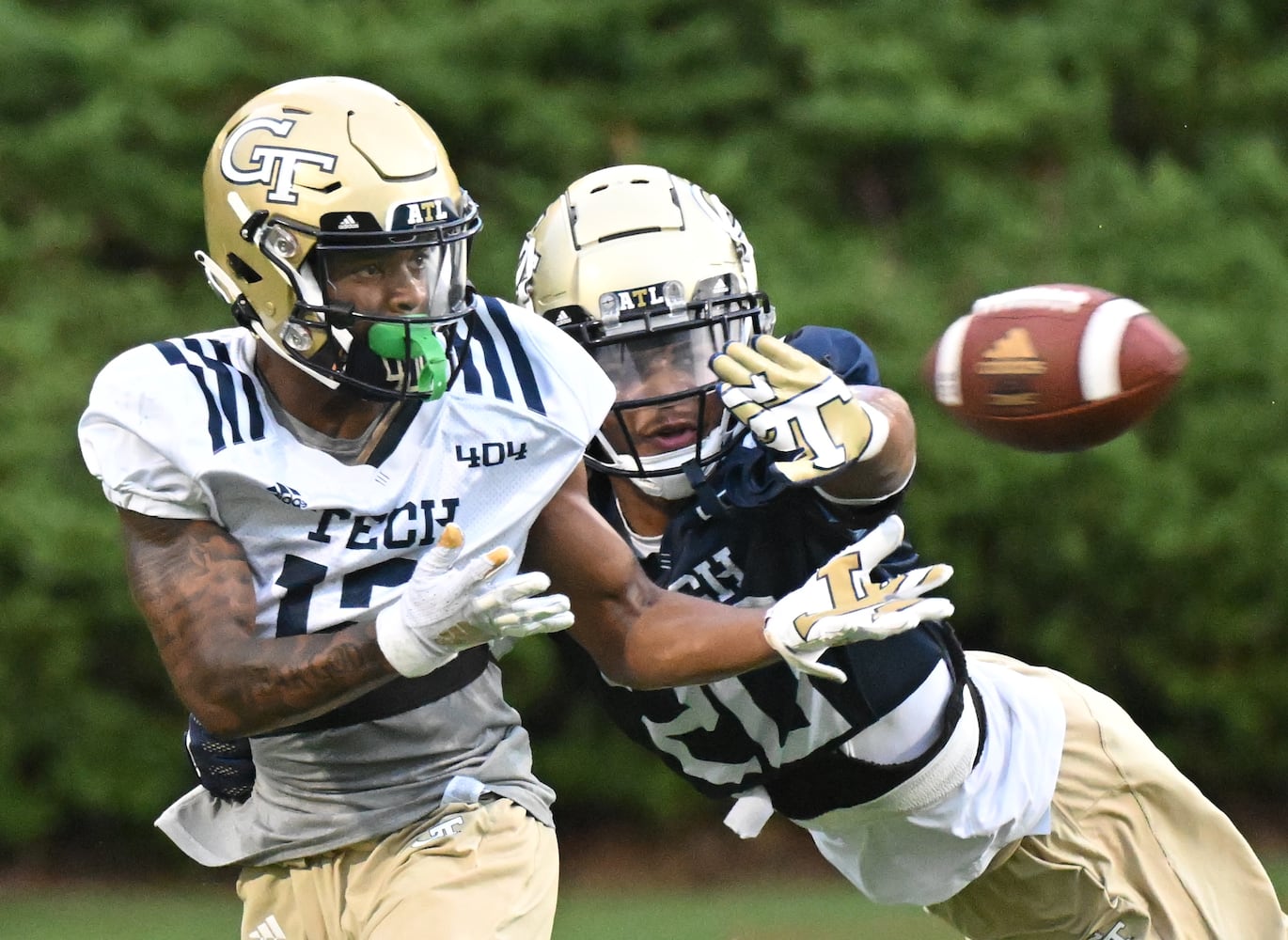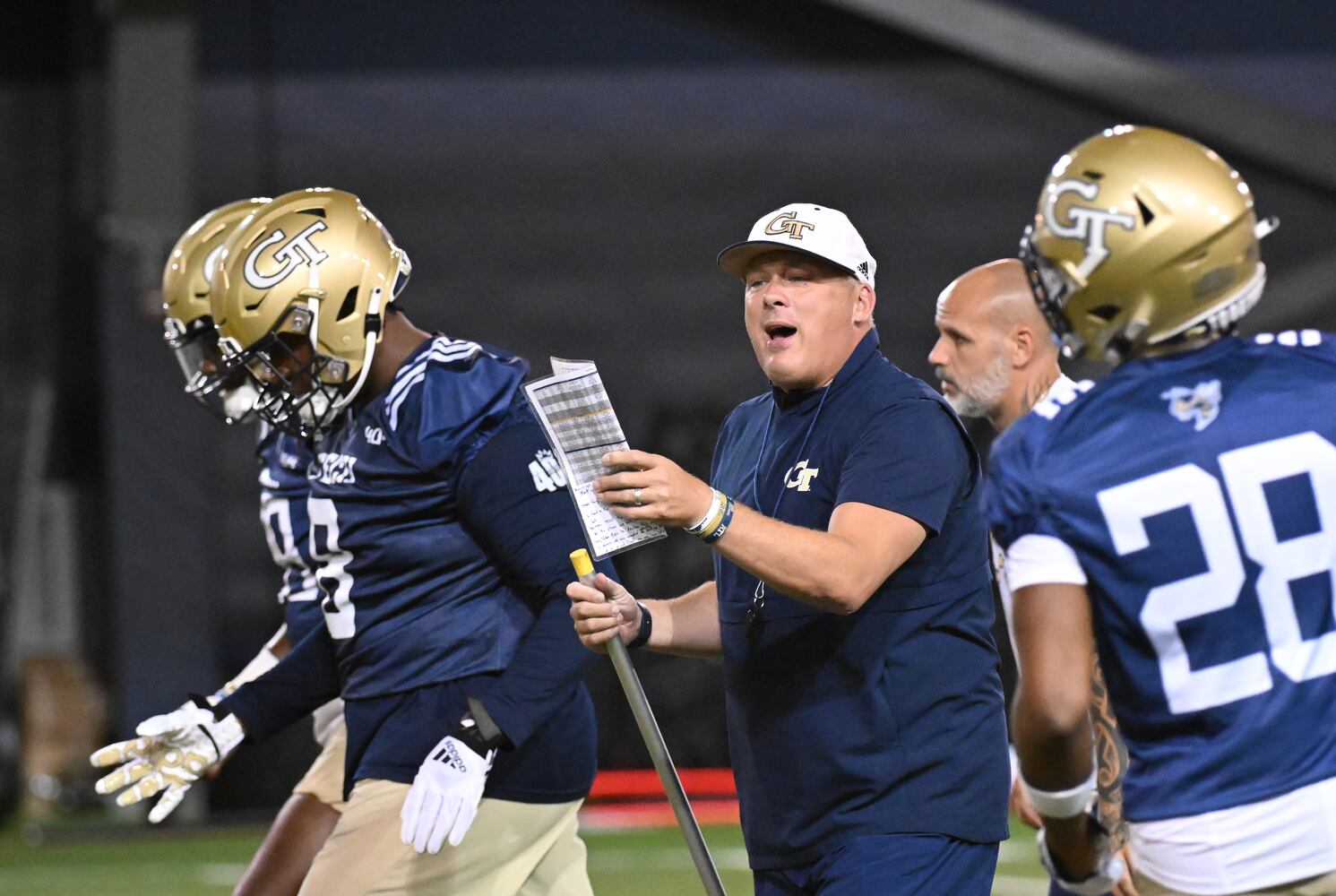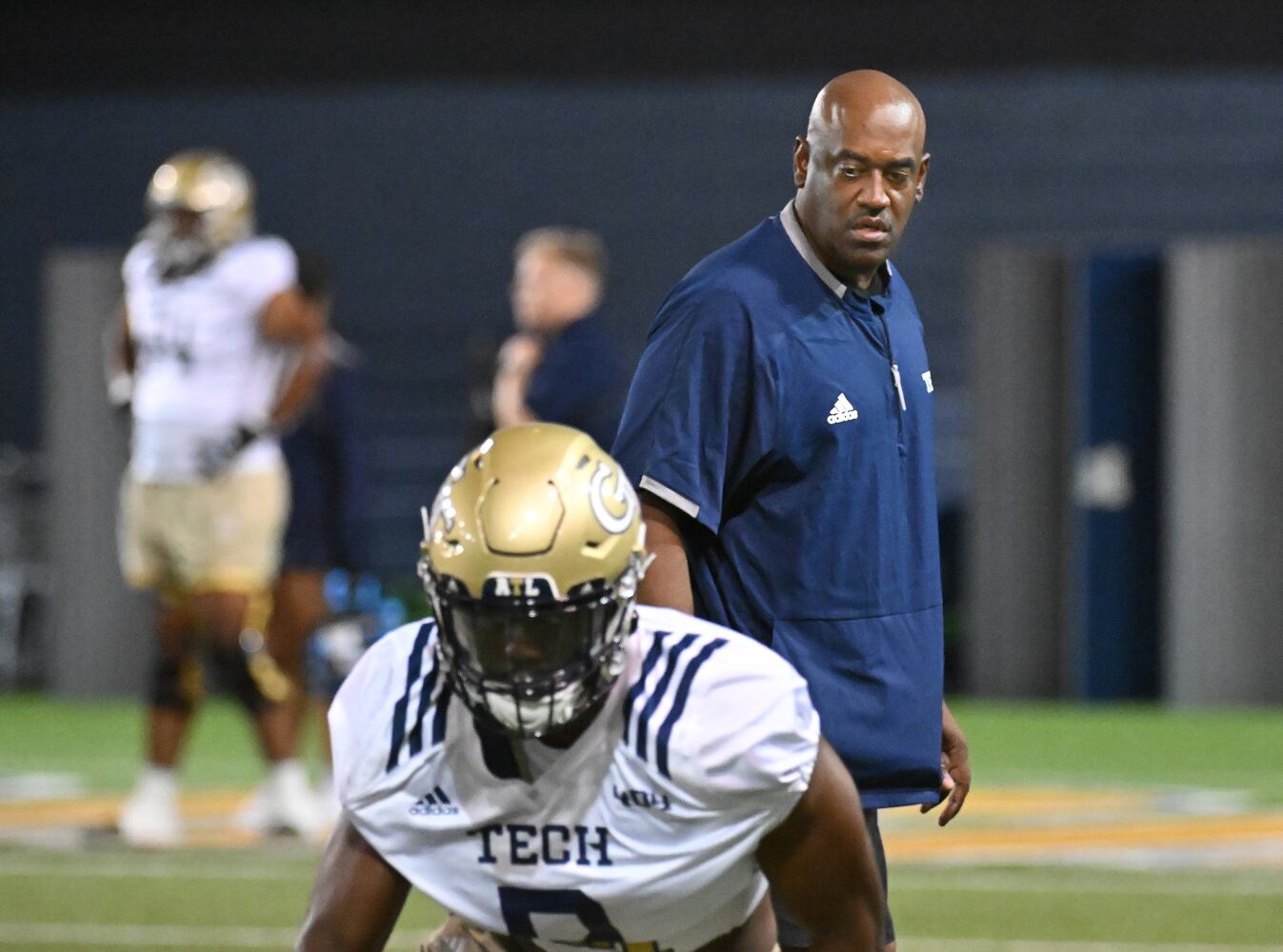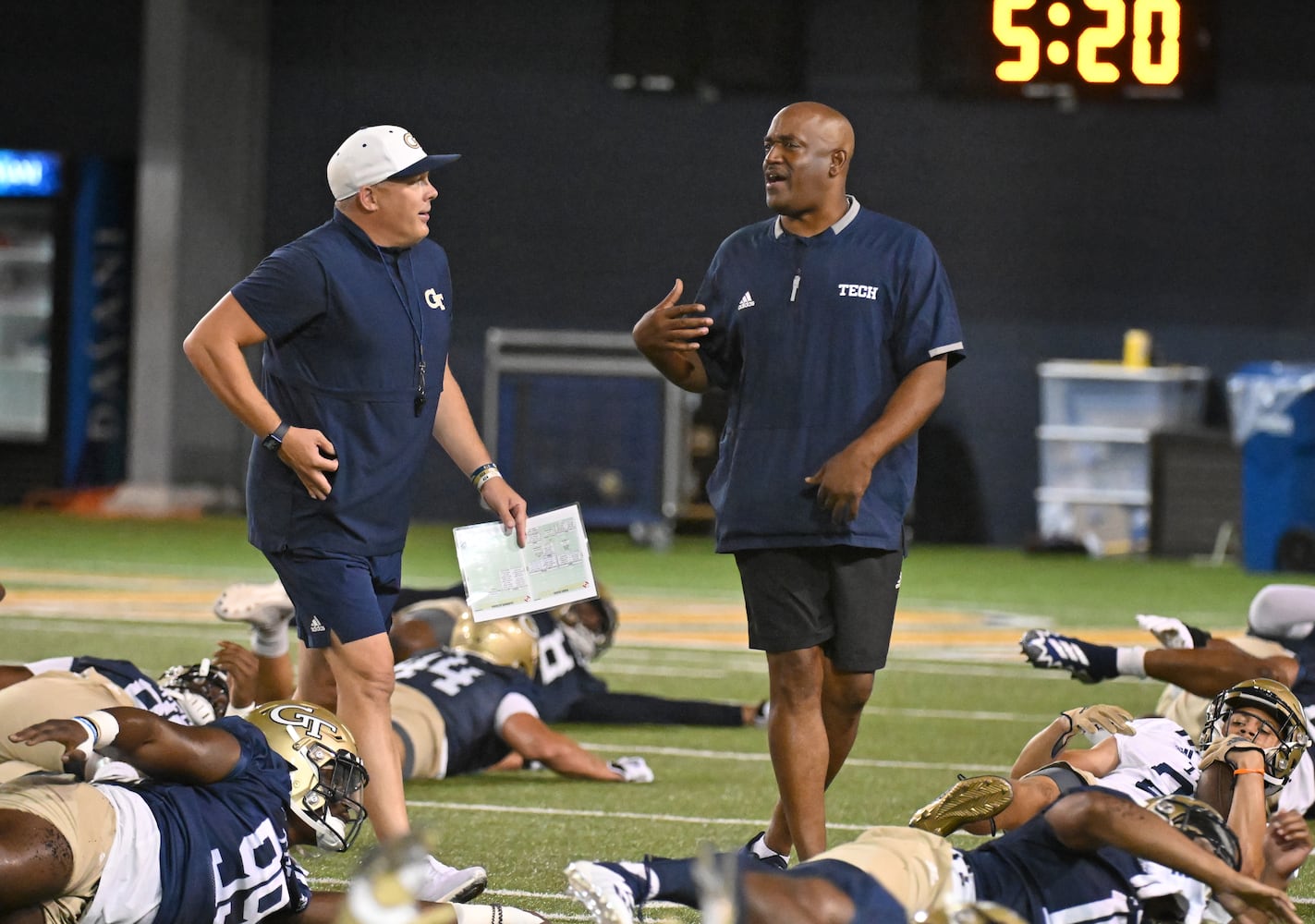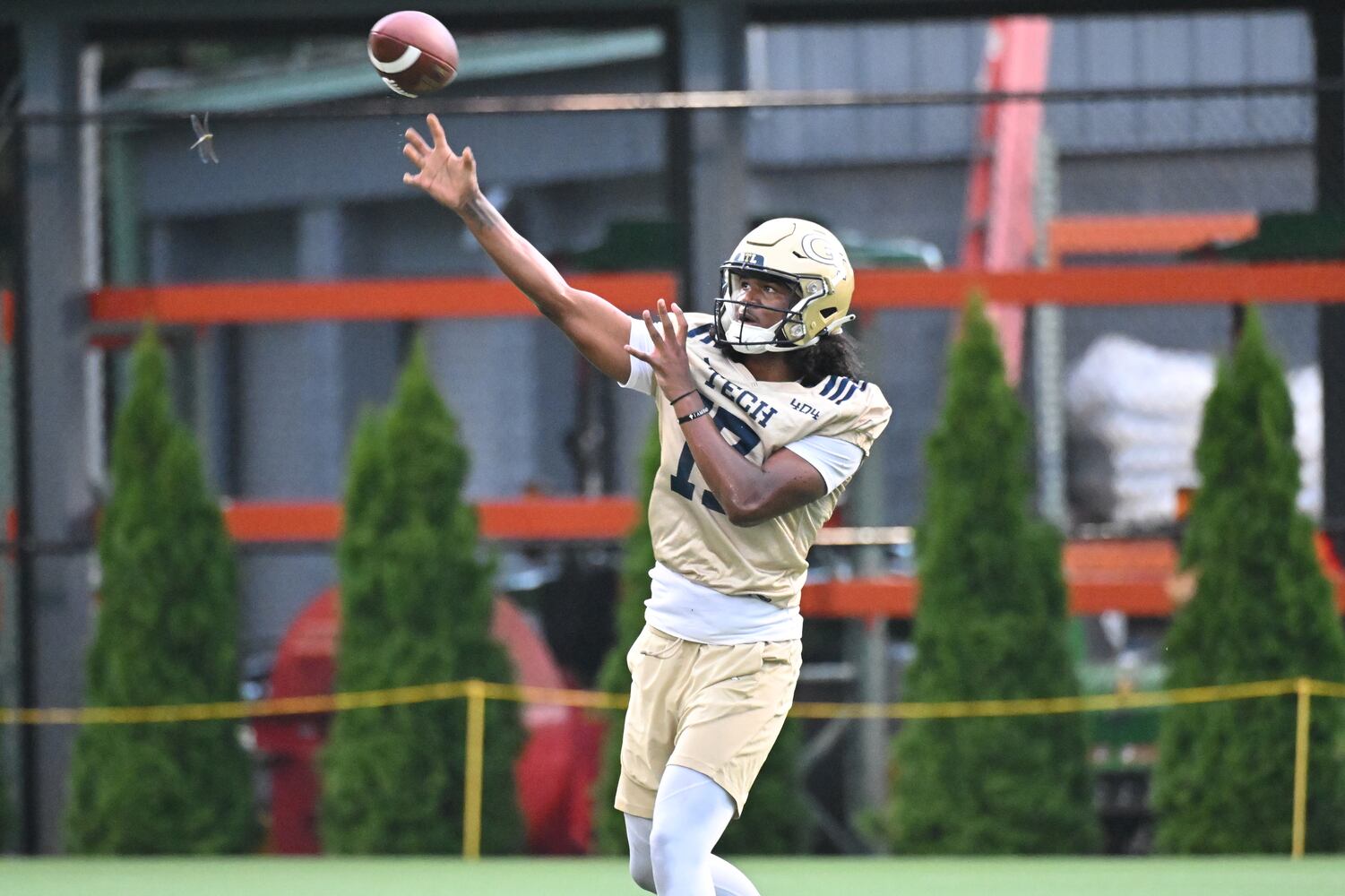A lot of people are counting on Geoff Collins this year. Not only Georgia Tech players and fans, although they are looking for him to lead the Yellow Jackets to greater heights than the three-win seasons that they’ve stomached in the first three years of his leadership.
But also the assistant coaches and off-field personnel – quality-control and analyst positions, strength-and-conditioning coaches and staffers in operations, recruiting, social media and the equipment room – whom Collins has brought to Tech, as well as their families. They need him to deliver the progress that will ensure that his tenure – and theirs – can be extended to a fifth season.
“I bear that every single day, and it matters to me,” Collins said in an interview this week with The Atlanta Journal-Constitution. “Every single person that’s in this organization, I’m not shy about how much I love and care and am appreciative every single day of their efforts and of who they are as people, so that is a big deal for me.”
Wednesday morning found Collins in his office at the north end of Bobby Dodd Stadium. The view overlooks Grant Field. Preseason practice was to start Friday. The coach sat behind his desk wearing a navy Tech pullover, leaning on an armrest, a wall of books behind him. He spoke about the season and his team with optimism – as much a Collins trait as the Waffle House cup that was stationed on his desk. And, as might be expected, he stepped around questions about the importance of this season in determining his future in his position.
“I think every year (I feel that),” he said in response to a question about whether he felt that this season, more than the previous three, he needs to produce to stay on as coach. “I think the biggest thing is, I have such a high expectation and a high standard, all day, every day, and that just carries over through the expectation in how you enter the building and how you coach the guys and communicate and invest and pour into them and pour into the program. I do that all day, every day, and will continue to do that.”
Asked if he felt that anything less than a bowl game was an unacceptable result, Collins responded, “I think we have goals and dreams and aspirations. And, again, if we play the brand of football that we’re capable of, I think people are going to be excited about the product on the field.”
While fans’ expectations vary, winning at least six games and making a bowl game is a tangible target after a three-year dry spell, albeit a lofty one against a rigorous schedule. It is Tech’s longest stretch without a bowl game since failing to make the postseason from 1992-96, the entirety of coach Bill Lewis’ tenure and successor George O’Leary’s first two seasons. Over the next 22 seasons (1997-2018), in fact, the Jackets missed only two bowl games and not in consecutive seasons.
Asked if a bowl game was what he needed to accomplish to earn a fifth season, Collins answered, “That’s what I want to do every year.”
In an AJC interview in May, athletic director Todd Stansbury did not set a specific win total for Collins to hit to advance to his fifth season, but said that it was imperative to win more games and make progress.
A year ago, Collins praised his team’s focus and maturity. With experienced players across the roster, it appeared the Jackets were poised to turn the corner. But, as the season went on, it was not uncommon for Collins to stop practice to chide the team for a lack of focus. Midway through the season, he said that players were not preparing properly and needed to pay more attention to detail. With injuries mounting, the Jackets lost their final six games to finish 3-9, leading to an offseason in which he fired three coaches, lost four to other jobs and watched All-American running back Jahmyr Gibbs leave through the transfer portal to Alabama.
Collins declined to address the possibility that he had misjudged the team’s potential last season.
“Just going through all of that with the guys,” he said. “I’m going to leave it there because I don’t want to go back. I’ve done that for the last eight months, and now I’m just ready for Friday to get here and let’s be the best version of ourselves with this team that we have in place right now.”
He did assert, though, that the season taught lessons.
“We’ve learned how we can do things better, and I think the guys have learned how they can do better, and they’re excited,” Collins said. “They’re communicating at a high level, forming bonds. There’s healthy competition.”
Collins reiterated the hope he has in changes made to the staff, replacing offensive coordinator Dave Patenaude with Chip Long and shuffling the defensive staff to better support defensive coordinator Andrew Thacker. Tech finished the season ranked 117th in total defense and 130th (last) in defensive passing efficiency.
“Andrew Thacker will call the plays on Saturdays,” Collins said. “But we’ve been able to bring in David Turner, a well-respected defensive-line coach, to help with the coordination of the run game and then Travares Tillman on the back end to help with the coverage component to make sure it’s cohesive and executing at a very high level, and I think the things that we have in place free me up to be heavily involved on the day-to-day.”
Of two possible question marks, the offensive and defensive lines, Collins pointed to the return of two-year starter Jordan Williams at offensive tackle, the experience gained last season by guard Paula Vaipulu and center Weston Franklin and the addition of four transfers, including guards Paul Tchio (Clemson) and Pierce Quick (Alabama).
On the defensive line, which lost both starting defensive ends to the transfer portal and three of the four defensive tackles who logged the most snaps, Collins pointed to defensive end Keion White, who transferred before last season but because of injury played in only the final four games of the season. White racked up 19 tackles for loss at Old Dominion in 2019.
“Defensive line-wise, I’m excited to see a healthy Keion,” said Collins, adding that White has provided leadership to the position group and defense as a whole.
Collins is hopeful for a boost from the 17 transfers who have arrived and “just the way this locker room has embraced the new guys,” he said. Collins believes that he himself is a better coach than he was when he was hired in December 2018.
“I think I’ve seen a lot, I’ve experienced a lot,” he said. “I think a lot of times, the hardships make you even stronger, and (you) look for ways to improve and don’t just rely on things just because it’s worked.”
He declined to answer a question about whether this season’s roster is better than last season’s, saying that it wouldn’t be fair to players on either team.
“Am I excited about the development that we’ve been able to have?” Collins asked. “There’s some guys that’ll be three-year starters, multiple-year starters that we’ve been able to recruit, develop. So obviously you’re excited about that progression and seeing those guys going into their maturity, going into their third year. That’s an exciting time.”
The excitement isn’t necessarily shared widely across the Tech fan base or among prognosticators. The Jackets were picked to finish sixth in the seven-team ACC Coastal Division, and ESPN’s Football Power Index projects them to win 3.9 games and gives them a 10% chance of winning six games.
Collins is well-aware of the waning approval.
“I understand that we haven’t yet met the standard that we all have for Georgia Tech football,” he said. “And I very much appreciate our fans’ passion and their support. I can promise them that my goal, which is at the front of my mind at all times, is to build a football team that the entire fan base, former players and alumni can be proud of, and that our players, coaches and staff are working extremely hard to achieve that goal.”
About the Author
Keep Reading
The Latest
Featured
